
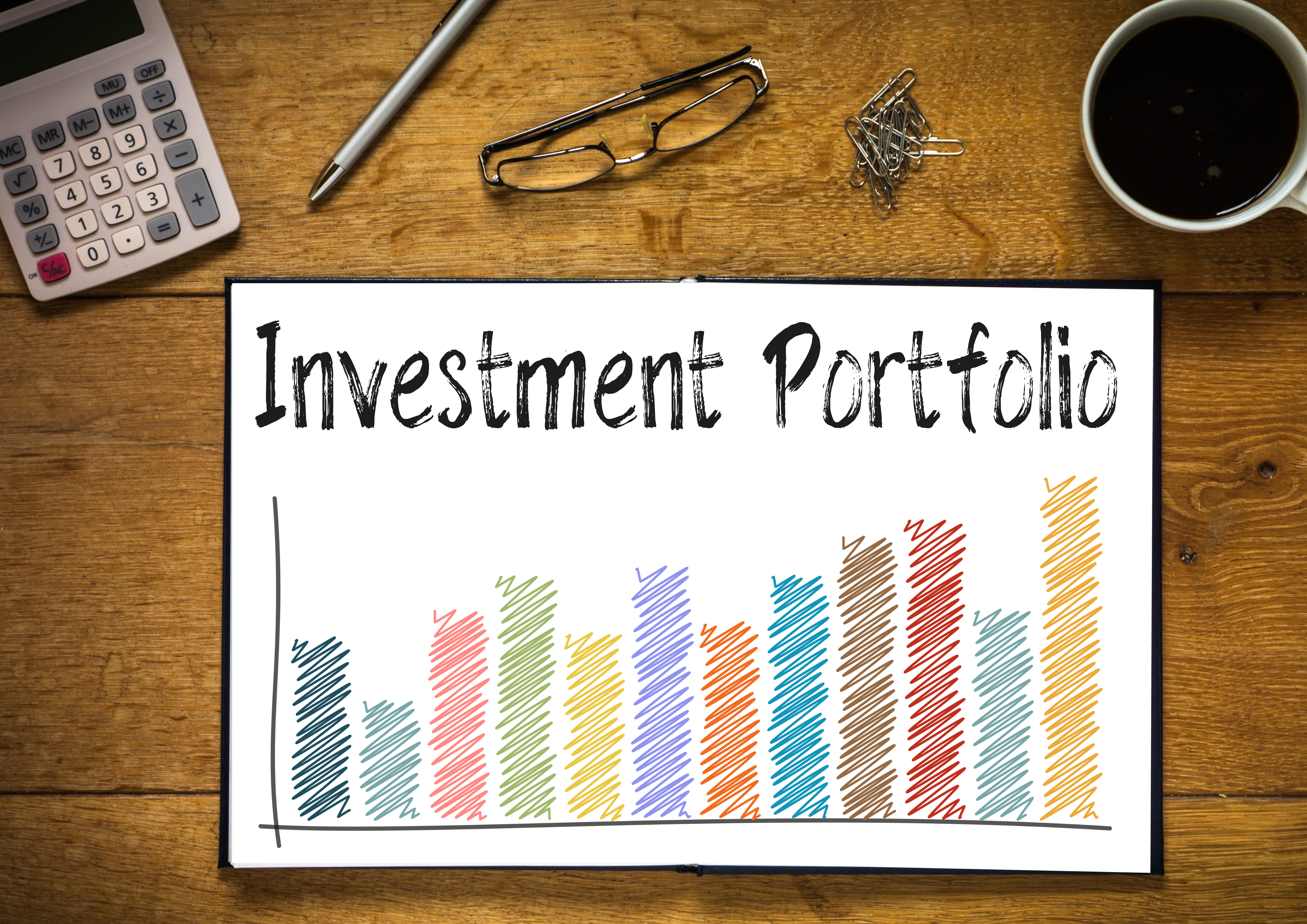
An investment means putting money into something that could grow in value or generate income. It could be anything from:
• Shares (stocks) – owning part of a company
• Bonds – lending money in return for interest
• Property – buying a house or flat to rent out
All investments involve a trade-off between risk and return.
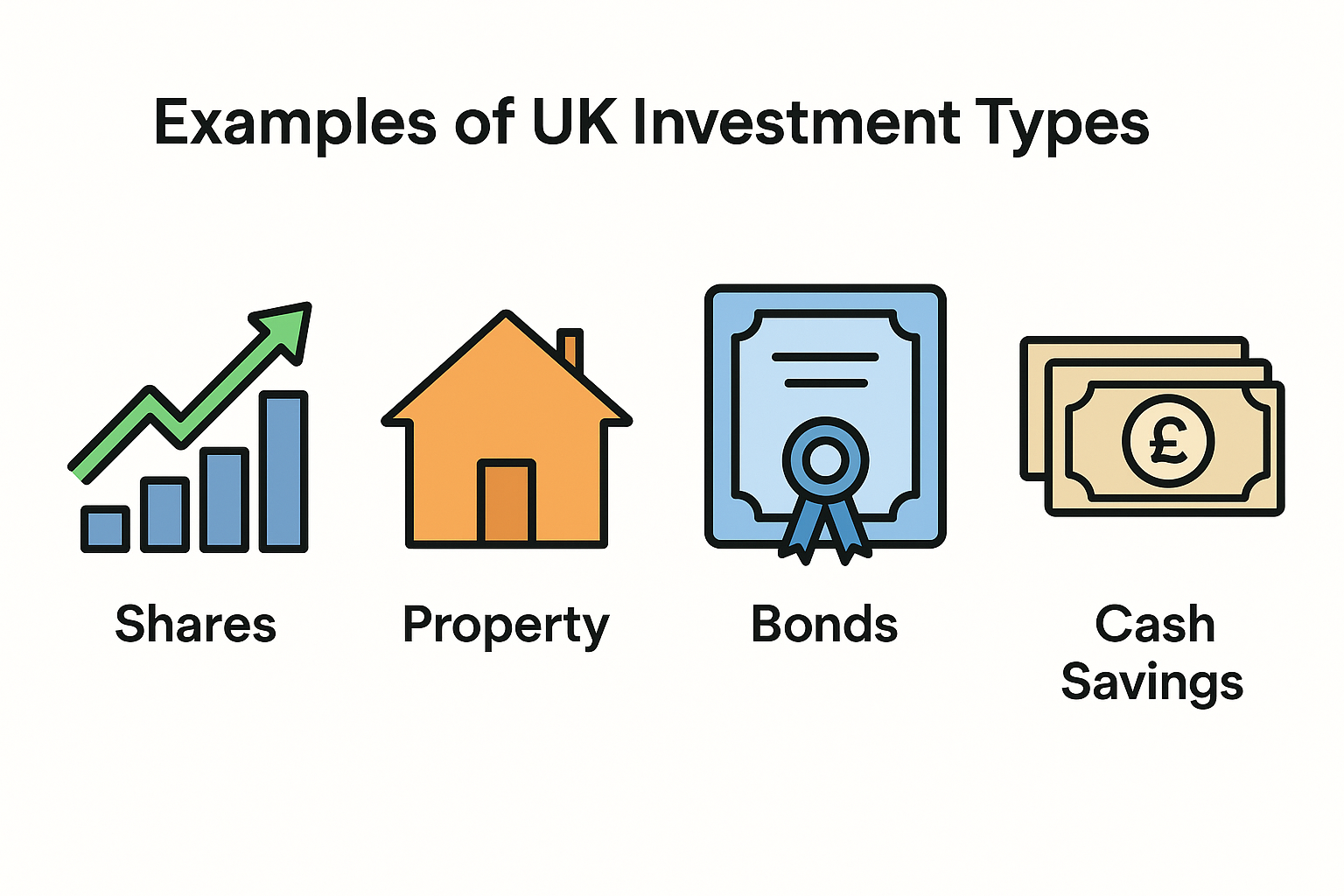
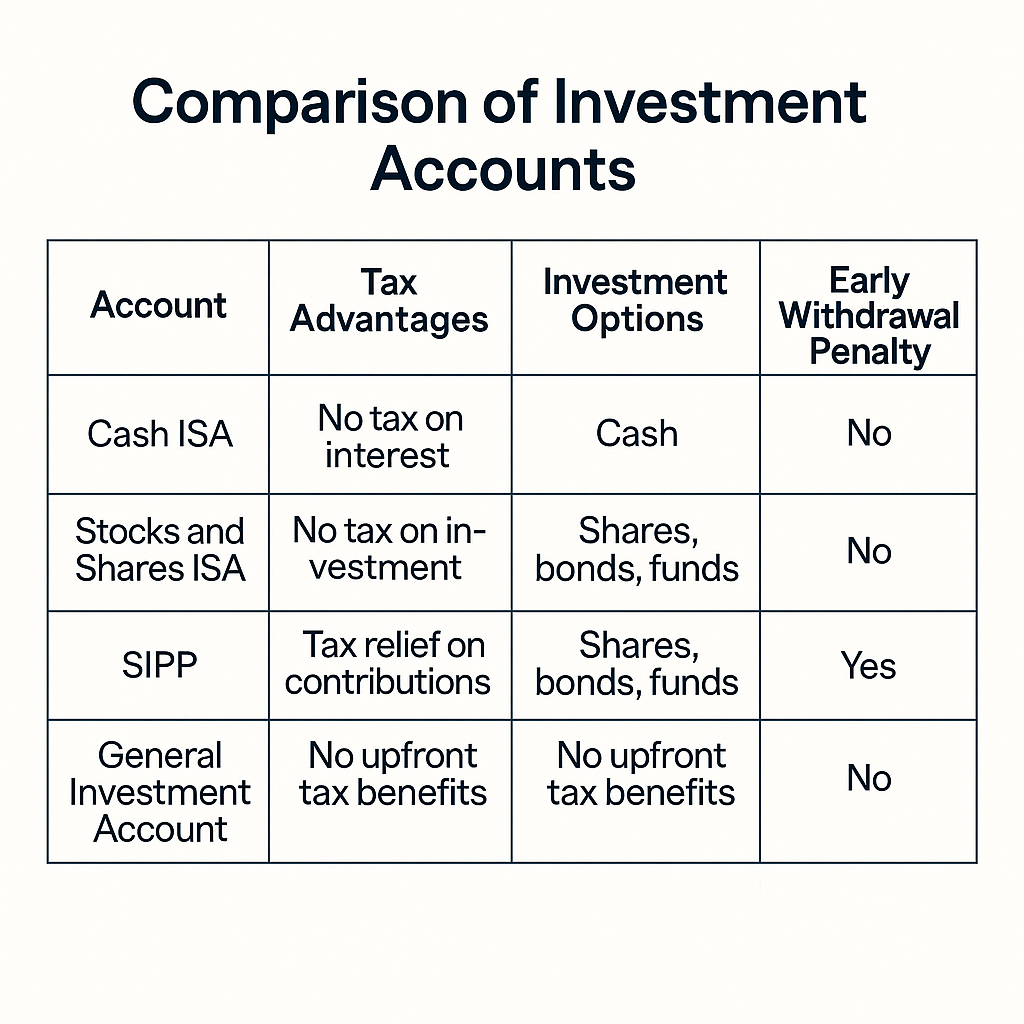
Tax-free growth by investing in company shares.
Risk: Medium to High.
Track market performance (e.g., FTSE 100).
Risk: Medium.
Managed funds listed on the stock exchange.
Risk: Medium to High.
Earn rental income.
Risk: Medium.
Lend to individuals/businesses online.
Risk: Medium to High.
Support small firms, get tax perks.
Risk: High.
Back start-ups.
Risk: Very High.
Get paid part of profits.
Risk: Medium.
Focus on sustainability.
Risk: Medium.
Protect against rising prices.
Risk: Low to Medium.
Invest in property indirectly.
Risk: Medium.
Invest in early-stage companies.
Risk: Very High.
Secure saving option.
Risk: Low.
• Low: Cash ISAs, savings
• Medium: Index funds, REITs
• High: Stocks, VCTs, private equity
• Liquidity – How quickly can you access your money?
• Volatility – How much can the value fluctuate?
• Time Horizon – How long can you invest for?
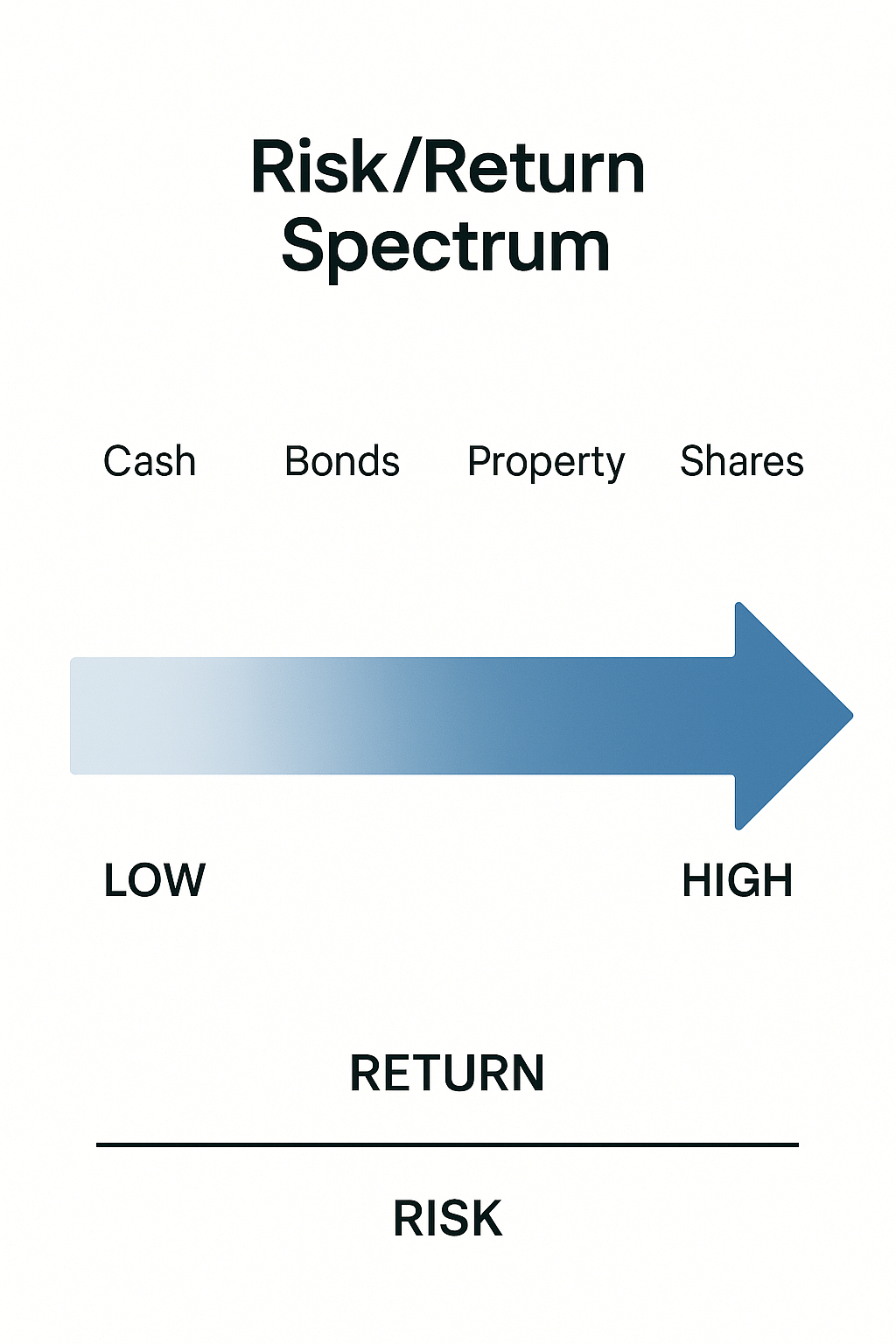
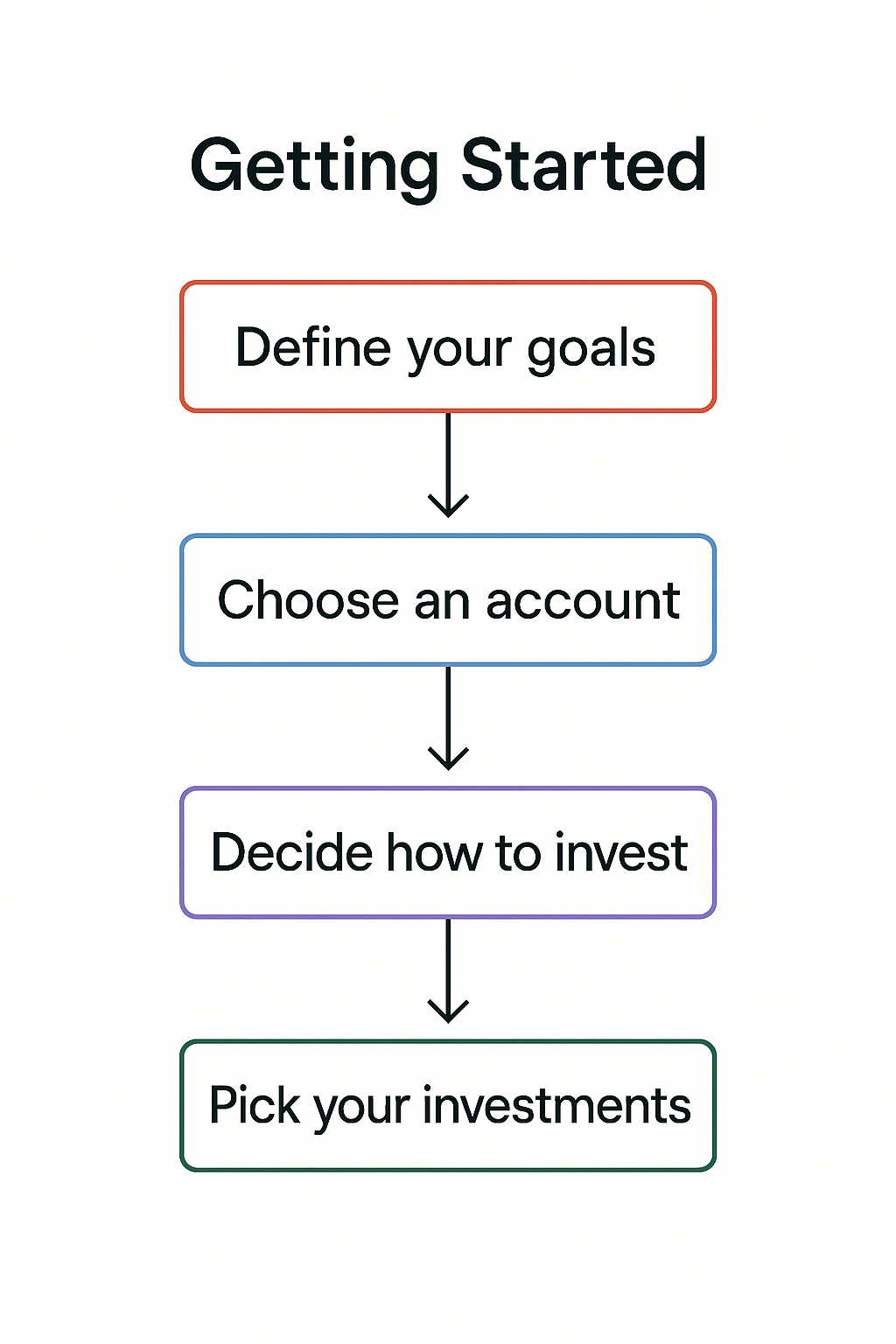
What are the 4 main types of investments?
Shares, bonds, property, and cash savings.
What’s the safest way to start investing?
Using a low-risk fund inside a Stocks & Shares ISA.
How can I grow £10,000 in the UK?
Invest gradually in a diversified fund over time.
What is a GIA vs ISA?
An ISA is tax-free (up to £20k/year). A GIA is flexible but taxable.
How much can I invest in an ISA in 2025?
Up to £20,000 per tax year.
Can I open both an ISA and a GIA?
Yes, many people use both.
Want help building your own high-yield investment portfolio? Open a tax-efficient Stocks & Shares ISA or flexible General Investment Account with Zomi Wealth. Get expert-built portfolios, no hidden fees, and simple digital access to grow your money confidently.





Subscribe to our newsletter for exclusive tips, expert advice, and the latest updates from Zomi Wealth—delivered straight to your inbox.
“Zomi Wealth’’ is a trading name of Zomi Group Limited who are authorised and regulated by the Financial Conduct Authority (FCA), FRN 149309. Past performance is not indicative of future returns. An investor may get back less than the amount invested. Information on past performance, where given, is not necessarily a guide to future performance. The capital value of units in the fund can fluctuate and the price of units can go down as well as up and is not guaranteed. The opinions and views expressed in this newsletter may not necessarily reflect the views of Zomi Group l Limited or its affiliates. The information provided in this newsletter is for informational purposes only and does not constitute a recommendation from any Zomi Group Limited entity to the recipient. Zomi Group Limited is not providing any financial, economic, legal, investment, accounting, or tax advice through this newsletter or to its recipient. Certain information contained in this newsletter constitutes “forward-looking statements,” and there is no guarantee that these results will be achieved. Zomi Group Limited has no obligation to provide any updates or changes to the information in this newsletter. Zomi Group Limited always recommends that the recipient take independent financial advice. Alternative investments often engage in leverage and other investment practices that are extremely speculative and involve a high degree of risk. Such practices may increase the volatility of performance and the risk of investment loss, including the loss of the entire amount that is invested. These investments are usually highly illiquid and generally not transferable without the content of the sponsor.
Investing in cryptocurrency is highly speculative and involves significant risk to capital, as its value is extremely volatile and can fluctuate widely in short periods. It is not regulated by the Financial Conduct Authority, meaning investors may not have access to financial protections, including the Financial Services Compensation Scheme (FSCS) or the Financial Ombudsman Service. There is also a risk of loss from fraud, cybersecurity breaches, or operational failures within cryptocurrency platforms. Investors should carefully consider whether they can afford to lose the entirety of their investment.
Know more about Zomi Wealth, how we invest, our plans and how to be a part of Zomi Wealth. Contact Us!